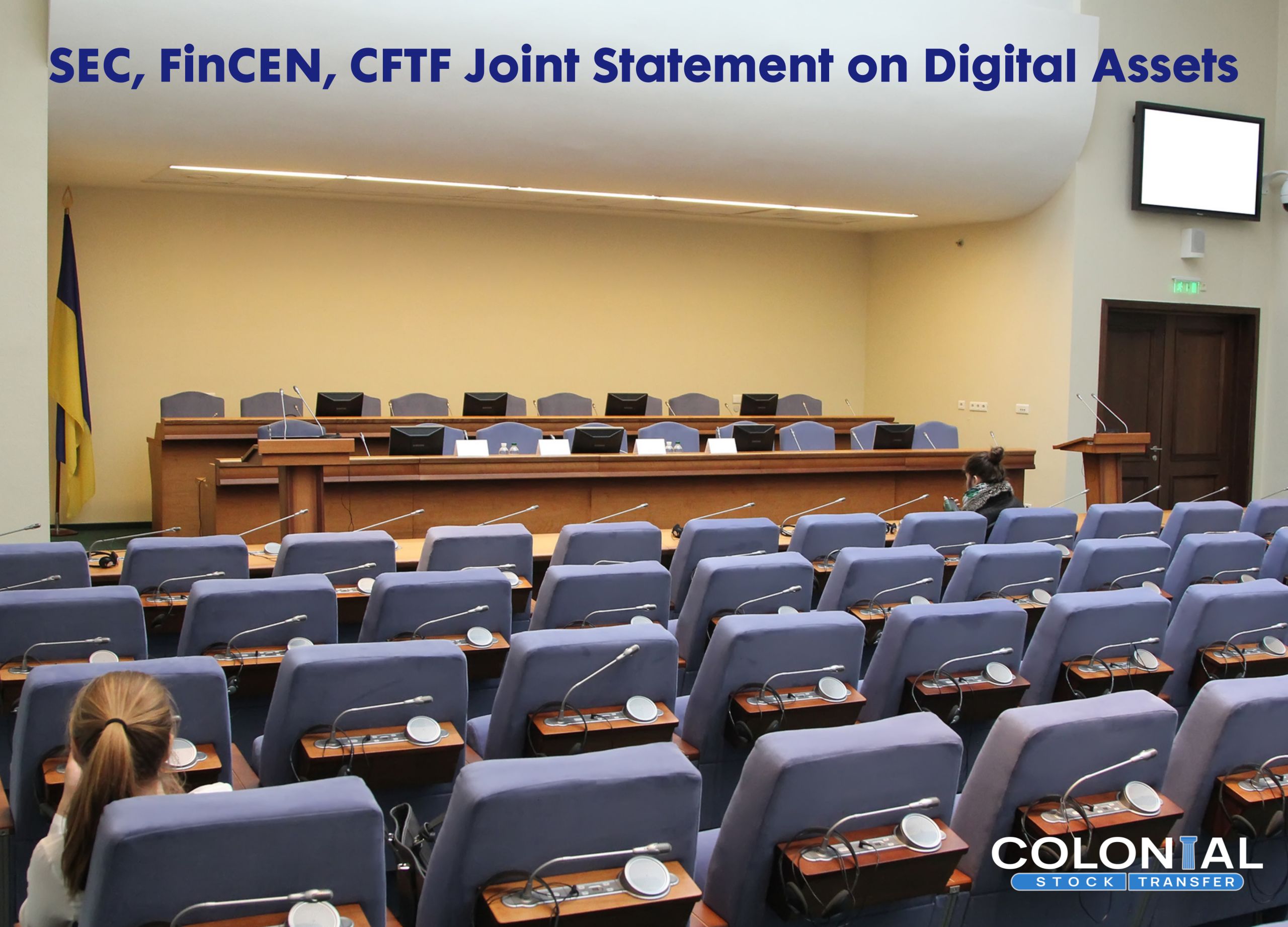
On October 11th of this year, a joint statement by the SEC, FinCEN, and the CFTF was released. This statement was a single node in a growing network of legal discourse on digital assets and currencies. It functioned largely as a clarification of law surrounding digital assets. It includes specific statements from each entity involved, in addition to its core message.
The statement came on the heels of an SEC hearing with the house financial services committee that heavily featured discussion of digital assets and cybersecurity. It was the first such hearing to feature all five SEC commissioners since 2007. (More on that hearing here.) The primary message of the joint statement involved a reminder of the AML/CFT sections of the Bank Secrecy Act (BSA). (These sections concern Anti-Money Laundering and Countering the Financing of Terrorism.) Under these sections, any entity considered by the BSA to be a “financial institution” carries certain legal obligations. These obligations have mostly to do with record keeping and the establishment of security procedures. The statement reminds entities who deal with digital assets that they, too, possess these obligations. At least, the ones who are considered financial institutions do. Find the BSA definition of “financial institution” here.
The statement also reminded that an entity’s use of digital assets determines the laws they are subject to. The agencies authoring the statement noted that the terminology and slang surrounding new digital assets can vary in use. Definitions of terms such as “digital asset” have yet to fully solidify in industry vernacular. The language used by an individual firm may vary from official terminology, causing confusion, or duplicity. The agencies seek to circumvent such confusion by assessing financial tools based on evidence and use. They are making efforts to reinforce the idea that digital assets will not be treated as being radically different from traditional ones.
The Organizations’ Statements
The CFTC’s specific statement clarified that any CEA licensed entity must adhere to the AML/CFT requirements. More information on who must register with the CFTC under CEA can be found here.
In the SEC’s specific statement, it gave a reminder of which entities under its governance are considered financial institutions. These include broker-dealers and mutual funds registered with the SEC. These, too, must comply with AML/CFT requirements under the BSA
FinCEN’s statement was broader than those made by the other two organizations. It took time to recognize its role as primary authority over the AML/CFT regulations. It gave a shortlist of requirements generally placed upon financial institutions subject to the BSA.
1. Such institutions must register with FinCEN as money services businesses (MSB), or with CFTC or the SEC.
2. They must prepare an AML compliance program designed to mitigate AML risks. This also means being in compliance with all BSA reporting requirements.
3. They must keep records for certain types of transactions.
4. They must obtain customer identification information necessary to be in compliance with AML record keeping requirements.
FinCEN also encouraged entities to carefully review guidance material to determine their MSB status.



